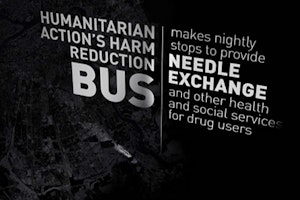On the Russian Internet, Cracks in Public Opinion on Drug Users’ Rights
By Ania Shapiro
Tales of tragedy caused by illegal drugs, and criticism of those who use them, have long pervaded the Russian media, itself increasingly aligned with the Putin government. The Russian Internet (Runet), however, is opening new opportunities for freer conversation and some resistance to dominant narratives on drugs.
For example, the popular Russian newspaper Moskovsky Komsomolets recently published an expose on the tragic death of Olesya Alymova, a young HIV-positive woman from Siberia who had been imprisoned for selling drugs. After months of neglect and mistreatment by corrections and medical officials, Olesya’s gangrene-infected leg was amputated too late, leading to the 23-year-old’s untimely death. This story—like so many that had come before—was cast as one of a promising young life derailed by vice with little reflection on the social (rather than individual) factors that may have contributed to a delayed medical procedure and unnecessary death.
As expected, many of the more than 140 reader responses reinforced contempt towards drug users as weak individuals. Some readers accused Olesya of causing her own death through overuse of her femoral artery for drugs (of which there was no proof). Another reader blamed the victim’s mother for “raising a drug addict.” Those who did mention structural factors sided with the medical system, justifying physician neglect of drug users by mentioning the low salaries they receive in Russia.
A significant number of voices, however, challenged mass intolerance and questioned the hypocrisy of Russian society’s stance on drug users—critical responses that rarely feature in Russian mainstream media.
In response to a reader named “Doctor,” one woman replied: “Whether patients are drug users or not is not your business, Doctor—your business is to treat them… We need to treat drug-addicts, not imprison them.”
Another reader agreed: “You can’t torment sick people… it’s high time to open special hospital wards where drug users and patients with HIV can receive any kind of care.”
As one reader commented: “First [the government] imprisoned half of the country for drugs, and now they are afraid to treat [prisoners with] HIV/AIDS? Thanks, ‘mother’ state.”
There have always been Russians who risked speaking out in support of treating—rather than criminalizing—drug users. The accessibility and relative anonymity of the Internet, however, are showing that there may be many more who share their views. Responses on media websites offer one forum—online communities for citizen journalism and reflection, like the Russian pages of Global Voices online, provide others. Publicly defending the rights of highly marginalized individuals is never easy in the context of a repressive regime. One can only hope that these voices will continue to find ways to counter mainstream, blame-the-victim accounts of drug use through the interactive digital media that is shaping post-Soviet space.
Until August 2013, Ania Shapiro was a program assistant with the International Harm Reduction Development Program.
